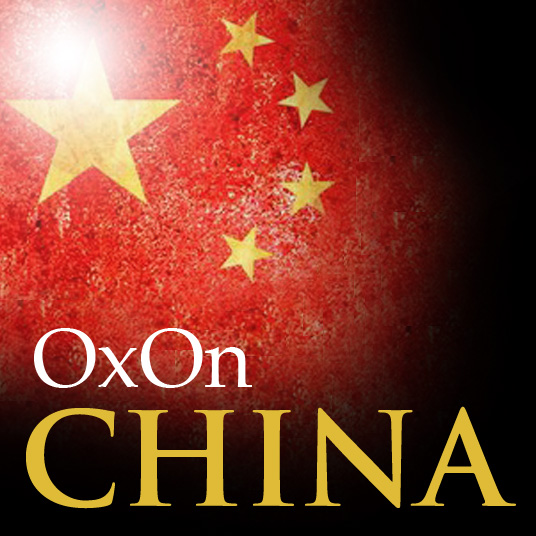The leadership turnover in China last year took place in a shifting political situation. Namely, there have been increased calls for more political accountability and multi-candidate elections, broader media freedom and financial reform.
We need to watch this closely. How China’s leadership reacts to these calls for change will determine whether it will continue its phenomenal ‘rise’ or be hampered by intransigence.
Let’s take a closer look at the context. The uprisings in the Arab world have prompted many to ask whether China will be the next to be swept along in a wave of popular unrest that has toppled rulers in several countries. Indeed, the Chinese leadership, both in power and previously in power, has been watching the situation carefully. This attention has been particularly justified considering that the current Chinese president assumed power at a time when social media became a real force. These new forms of communication played an undisputable role in the Arab and Maghreb uprisings. Now, half a billion Chinese are registered on Sina Weibo, a website much like Twitter. This online platform has served “netizens” to voice many complaints ranging from governance malfunctions and corruption to food and environmental issues.
This raises inevitable questions. Is the bid for democratic reform a matter of time? Might the prediction of an “end of history” and of a uniform move in the direction of liberal democracy make a comeback? Or, might there be other sustainable alternatives?
Under the current Chinese model – with a meritocratic bureaucracy and self-enforced leadership turnover – people are materially better off than ever before. This has happened in a short period of time, generating a great deal of optimism. Yet, there are two things to consider: the first is whether the Chinese governance model can still be preserved in the long term. Second, this will depend on whether it is sustainable in a world of greater connectivity and deepening global interdependence.
The `Chinese model` is built around a long tradition of meritocratic recruitment, civil service examinations, high emphasis on education and deference to technocratic authority. Some of these factors may be a source of dynamism that may give the Chinese state the capacity to adapt to changing circumstances.
Yet, weaknesses abound. The dignity of Chinese citizens is violated by land seizures and unfair compensation. Forced relocation to make way for development projects is common. Corruption is also rife, reflecting the absence of a robust rule of law. China also faces serious healthcare, environmental and demographic challenges. Water and air pollution, for instance, stand as examples of the price paid by China`s meteoric rise.
In this context, rapid growth may buy social peace for the time being; but in the long run, public outrage may be more difficult to contain. The growth of a middle class inevitably leads to shifting values and demands.
A government based on dignity
In my work (and see blog post), I have advocated “a sustainable history thesis”, which suggests that the sustainability of any political order depends on the guarantee of human dignity for all people, at all times and under all circumstances. Dignity here means much more than just the absence of humiliation. It also includes nine fundamental metrics of dignity. This includes an accountable government first and foremost, but also reason, security, human rights, transparency, justice, opportunity, innovation and inclusiveness. It is also more inclusive than just the insistence on “political freedom” which is central to current forms of liberal democracy and the “end of history thesis “.
Adopting reforms that are sensible and inclusive guards against various forms of disenfranchisement, ranging from social, economic or cultural. Rather than being utopian or idealistic, such steps are pragmatic and serve realist state interests. Addressing dignity is not a question of political concessions or liberal bias, but of meeting fundamental human needs. If these are ignored it will backfire.
Therefore, sustainable reforms do not have to imply a transition to mainstream liberal democracy. Rather than insisting that Western-type liberal democracy is the ultimate form of governance for all societies, we need to envisage alternative and feasible governance models that go beyond aspiring for ‘freedom’ and prioritize human dignity, as laid out in the sustainable history thesis.
China has a way to go. The spread of ideas faces restrictions. Public policy fails to address issues of social welfare and protect human rights. Some officials are held to account; but this comes from the top-down and rules are hardly enforced uniformly or transparently. China has a dynamic economy that has lifted many people out of poverty, but stark disparities remain and inequality rates are at levels comparable to those of Russia and the Philippines.
Learning from the mistakes of others
These ‘dignity deficits’ could be China’s Achilles heel. Armed with social media, the young people of Tunisia, Egypt and Libya revolted because their governments failed to respect and ensure the collective dignity of their citizens. The accumulation of collective dignity deficits were bound to translate into a level of frustration and discontent that ultimately could not be contained. If China is different, it is because it is able to deliver on economic development for the time being, even if wealth is unevenly distributed. But the winds of change are bound to blow eastward.
Thus, it is not only economic reform that is urgent, but reforms targeting corruption and addressing the wider popular call for fairness. The Third Plenum held in November 2013 did open a new era of political changes in the sense that it altered some of the domestic institutional structure by establishing the National Security Committee and the Central Reform Leading Group, mandated to guide the national security and economic policy. Such institutional changes are tectonic to many observers as they will recalibrate the internal political forces, making the two bodies operate under the authority of the party`s Politburo and its standing committee. Still, there is more to do. The Plenum did not adopt further reforms that were hoped to potentially address the crisis of governance and growing challenges of China.
Social unrest still remains a possibility. This should encourage the leadership to proceed to consequential reforms and changes in a way that may not necessarily lead to the culmination of a Western-type liberal democracy. The alternative may rest in a tactful yet significant and dignity-driven evolution of the present system, according to the Sustainable History model, which would maintain China`s cultural specificities and at the same time, give its government more stability, accountability, sustainable prosperity and authenticity in the long run.








1 Comment
“There cannot be two suns in the sky, nor two emperors on the earth.” said Dr. Pilssbury in The Hundred Year Marathon. These words make a huge impact on dicussing the future of China and their model. There can be very different political and governance model at all in 10 years.